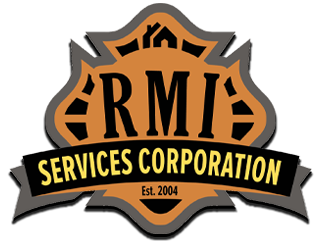6 things to consider when it comes to VOC testing
Volatile Organic Compounds (VOCs) are a group of organic chemicals that can easily evaporate into the air, potentially leading to various health and environmental concerns. VOC testing is important for assessing and managing indoor air quality, emissions from industrial processes, and other environmental and health-related issues. RMI Services Corp. provides VOC testing in and around Fort Lauderdale, Hollywood, FL, Coral Springs, Pompano Beach, Boca Raton.
Here are five key considerations when it comes to VOC testing:
- Purpose of Testing:
Determine the specific goals of your VOC testing. Are you assessing indoor air quality in a home or workplace? Are you monitoring emissions from an industrial process or conducting environmental sampling? Understanding the purpose will help you select the appropriate testing methods and equipment.
- Sampling Methods:
Select the most suitable sampling methods for your application. Common methods include active air sampling using pumps and sorbent tubes, passive diffusion sampling, and canister sampling. The choice of method depends on factors like the location, the type of VOCs you are interested in, and the sampling duration.
- Analytical Techniques:
Choose the right analytical technique for VOC analysis. Gas chromatography-mass spectrometry (GC-MS) is a widely used method for identifying and quantifying VOCs. Other techniques, such as direct-reading instruments and portable gas detectors, may be used for real-time monitoring and field measurements. Ensure that the chosen method is appropriate for the specific VOCs you want to measure.
- Sample Preservation and Handling:
Properly collect, store, and transport samples to the laboratory to avoid contamination and degradation of VOCs. Follow established protocols for sample collection, including container selection, labeling, and chain of custody documentation. Ensure that samples are stored at the correct temperature and in appropriate containers.
- Regulatory Compliance:
Be aware of local, state, and federal regulations that pertain to VOC testing and emissions monitoring. Depending on your location and industry, there may be specific requirements and limits for VOC emissions. Compliance with these regulations is critical to avoid legal issues and potential fines.
- Data Interpretation:
After obtaining test results, it’s essential to interpret the data effectively. Compare the results to relevant guidelines or regulatory limits to assess whether VOC concentrations are within acceptable ranges. Additionally, consider the potential health risks associated with the detected VOCs and take appropriate action if needed.
VOC testing is crucial for safeguarding both human health and the environment. By considering these factors, you can ensure that your testing efforts are effective and yield reliable results. Please call us without hesitation.

